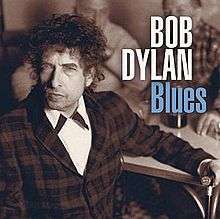
Militsiya
Militsiya or militia (Russian: мили́ция; IPA: [mʲɪˈlʲitsɨjə], Belarusian: міліцыя, Armenian: միլիցիա [militsʰja], Kyrgyz: милиция, Lithuanian: milicija, Polish: milicja, Romanian: miliția, Slovene: milica , Tajik: милитсия, Ukrainian: міліція, Uzbek: militsiya or милиция), often confused with militia, is used as an official name of the civilian police in several former communist states. The term was used in the Soviet Union and several Warsaw Pact countries, as well as in the non-aligned SFR Yugoslavia, and it is still commonly used in some of the individual former Soviet republics and eastern Europe.
Name and status
The name originates from a Provisional Government decree dated April 17, 1917, and from early Soviet history, when both the Provisional Government and the Bolsheviks intended to associate their new law enforcement authority with the self-organization of the people and to distinguish it from the czarist police. The militsiya was reaffirmed on October 28 (November 10, according to the new style dating), 1917 under the official name of the Workers' and Peasants' Militsiya, in further contrast to what the Bolsheviks called the "bourgeois class protecting" police. Eventually, it was replaced by the Ministry of Internal Affairs (Russian: МВД, MVD; Ukrainian: МВС, MVS; Belorussian: МУС, MUS), which is now the official full name for the militsiya forces in the respective countries. Its regional branches are officially called Departments of Internal Affairs—city department of internal affairs, raion department of internal affairs, oblast department of internal affairs, etc. The Russian term for a raion department is OVD (ОВД; Отдел/Отделение внутренних дел), for region department is UVD (УВД; Управление внутренних дел) or, sometimes, GUVD (ГУВД; Главное управление внутренних дел), same for national republics is MVD, (МВД; Министерство внутренних дел).

Militia (United Kingdom)
The Militia of the United Kingdom were the military reserve forces of the United Kingdom after the Union in 1801 of the former Kingdom of Great Britain and Kingdom of Ireland.
The militia was transformed into the Special Reserve by the Territorial and Reserve Forces Act 1907.
For the period before the creation of the United Kingdom, in the home countries and their colonies, see Militia (Great Britain).
Nineteenth century
A separate voluntary Local Militia was created in 1808 before being disbanded in 1816
Although muster rolls were prepared as late as 1820, the element of compulsion was abandoned, and the militia was transformed into a volunteer force. It was intended to be seen as an alternative to the army. Men would volunteer and undertake basic training for several months at an army depot. Thereafter, they would return to civilian life, but report for regular periods of military training (usually on the weapons ranges) and an annual two week training camp. In return, they would receive military pay and a financial retainer, a useful addition to their civilian wage. Of course, many saw the annual camp as the equivalent of a paid holiday. The militia thus appealed to agricultural labourers, colliers and the like, men in casual occupations, who could leave their civilian job and pick it up again.

Blues...?
Blues...? is an album by American jazz group the String Trio of New York recorded in 1993 for the Italian Black Saint label.
Reception
The Allmusic review by Scott Yanow awarded the album 4 stars stating "this is a successful effort, well worth seeking out by adventurous listeners".
Track listing
- Recorded at Barigozzi Studio in Milano, Italy on October 5 and 6, 1993
Personnel
References

Blues (Jimi Hendrix album)
Blues is a posthumous compilation album by musician Jimi Hendrix, released April 26, 1994, on MCA Records. The album contains eleven blues songs recorded by Hendrix between 1966 and 1970. Out of these eleven, six were previously unreleased. The tracks include seven of Hendrix's compositions along with covers of famous blues songs such as "Born Under a Bad Sign" and "Mannish Boy". Most of the album's material consists of leftover studio tapes that Hendrix might have never intended to release.
Compiled by MCA and released in 1994, Blues was met with favorable criticism and multiple chart success, selling over 500,000 copies in its first two years of release. On February 6, 2001, Blues was certified platinum in sales by the Recording Industry Association of America. The album was re-released on Experience Hendrix Records in 1998, following the Hendrix family's acquisition of the musician's recordings.
This collection was re-released again in October 2010 as part of the Hendrix family's project to remaster Jimi's discography.

Blues (Bob Dylan album)
Blues is a single-disc compilation album by Bob Dylan, released on June 27, 2006 and distributed exclusively by Barnes & Noble. By November 2011 it also became available to members of the Jazz Heritage Society through their Review, Release # 564.
Track listing
References
Bandwagon
Bandwagon or band wagon may refer to:
- Argumentum ad numerum, or the bandwagon fallacy: "If many believe so, it is so"
- Bandwagon fan, supporter of a sports team only during a period of success
- Bandwagoning, a term in international relations
Art, entertainment, and media
Films
Music
Bandwagon (magazine)
Bandwagon is the bimonthly journal of the Circus Historical Society. Originated in 1940 as SPEC, it is still in print today. The magazine was renamed as Bandwagon in 1941. The headquarters is in Colombus, Ohio. Contributing writers include Stuart Thayer and William L. Slout.
References
External links
Podcasts:

